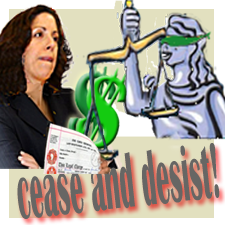Legal Thuggery used to block honest experts, Say Montana Supremes
- By Paul Davies
(extracted) Gibson Dunn’s “use of the judicial system amounts to legal thuggery,” the state Supreme Court said.
The court found that the firm, which employs about 800 lawyers, acted with a “high level of misconduct” … using the courts as a “tool” … to intimidate Steve Seltzer, a Montana painter and Olaf’s grandson, who is an expert in his grandfather’s work. The judge overseeing the case reduced the punitive damages to $9.9 million, citing a U.S. Supreme Court ruling that limits how much punitive damages can exceed compensatory damages. The jury also awarded $1.1 million in compensatory damages.
Gibson Dunn sued Seltzer of behalf of collector Steve Morton who owned the painting, titled “Lassoing a Longhorn.”  Morton purchased the painting for $38,000 in 1972, which has “C.M. Russell 1913″ scrawled on the lower left corner. Russell, who died in 1926, was a well-known painter of scenes from the American West.
Morton purchased the painting for $38,000 in 1972, which has “C.M. Russell 1913″ scrawled on the lower left corner. Russell, who died in 1926, was a well-known painter of scenes from the American West.
Morton planned to sell the painting an auction. But a partner at the auction house questioned whether the painting was done by Russell. He contacted Seltzer and another expert to authenticate the painting. After Seltzer determined the painting was done by his grandfather and not Russell reducing the value to $50,000 from as much as $800,000 Morton had a retired partner at Gibson Dunn send a letter threatening to sue if Seltzer if he didn’t recant his opinion.
After Seltzer refused, Gibson Dunn filed a lawsuit on behalf of Morton in federal court in July 2002 accusing Seltzer of fraud, malice and bad faith.
This is an interesting case study of “abuse of process” and punitive damages. The purpose of the legal system is to resolve genuine disputes. “Abuse of process” in this case involved misusing the legal system to coerce an art expert into changing his professional opinion of an artwork so the owner of a non-authentic work could sell it as an authentic work at a much higher price. Punitive damages, which are widely misunderstood by the general public, are not intended to enrich the party to whom they are awarded, but to punish and deter bad conduct by the party against whom they are awarded — in this case, a law firm that among other things concealed and lied about material evidence in its possession that it should have disclosed in the legal discovery process. And, overall, the Montana Supreme Court’s decision simply makes for fun reading, at least, to lawyers who enjoy that sort of thing.